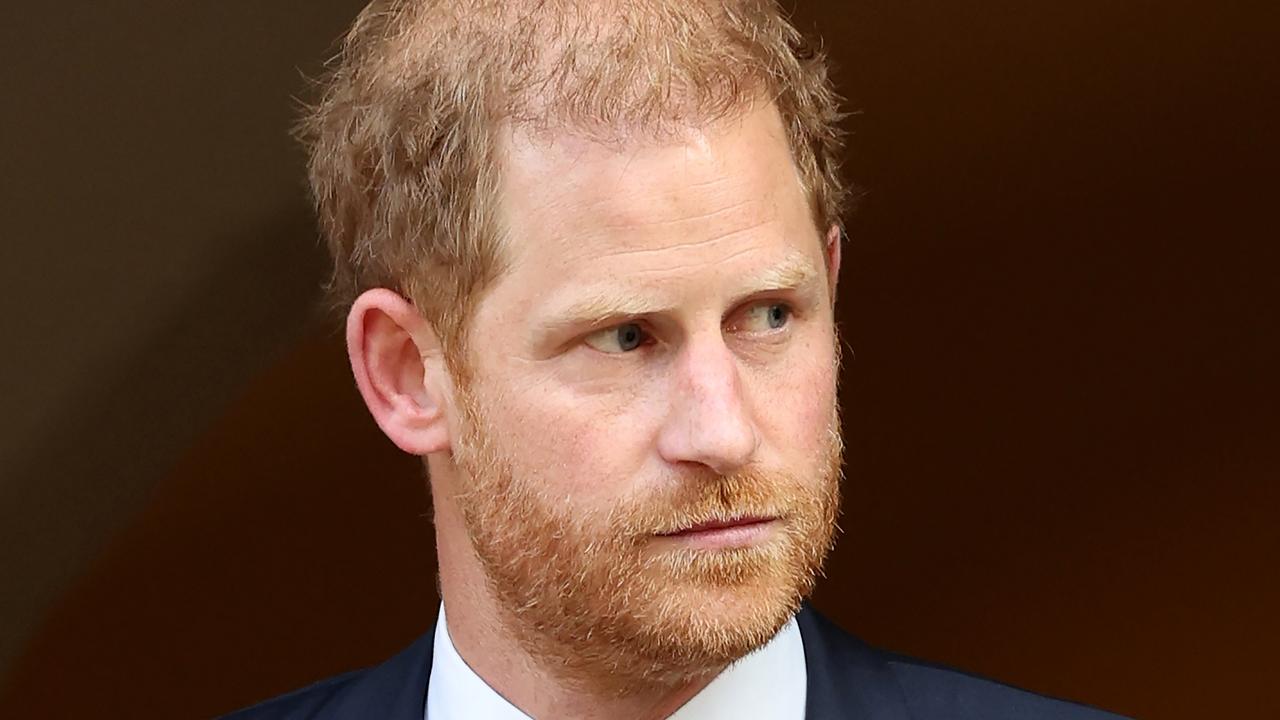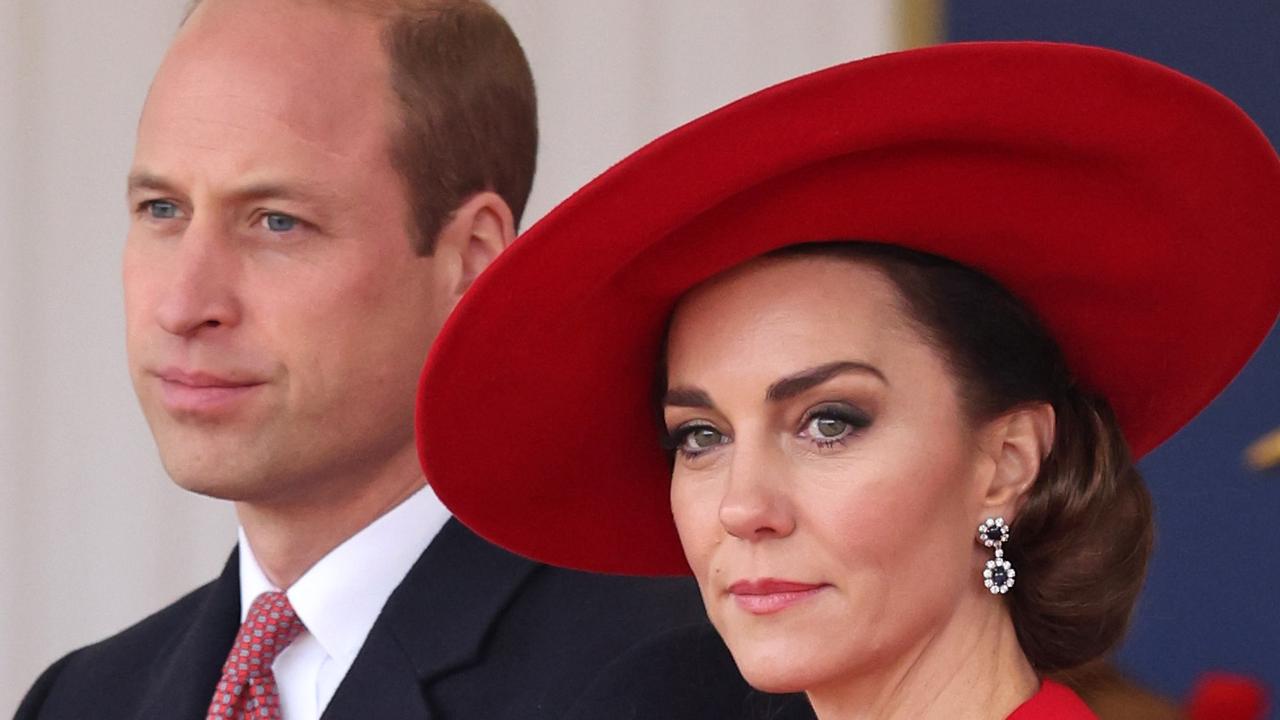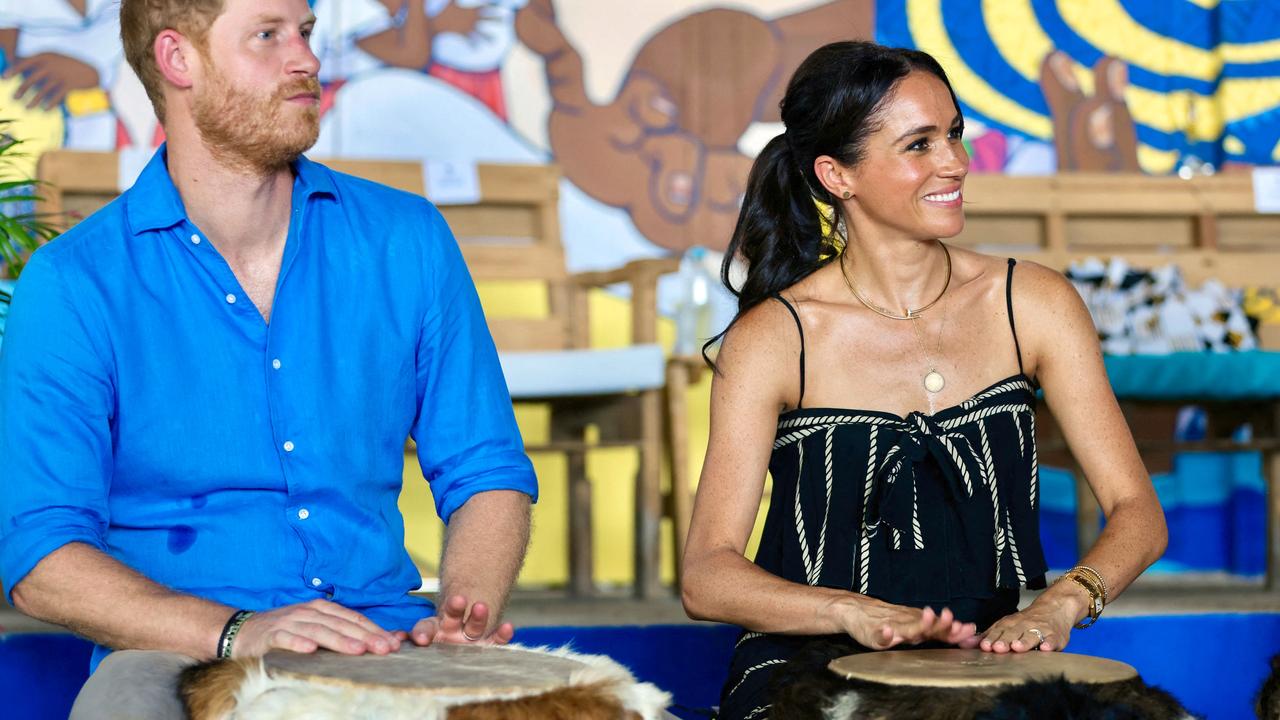‘He’s an angry boy’: Sources reveal Prince Harry is ‘angry, isolated’ in ‘exile’ in the US
A bumper new report has laid bare a tranche of details about the Duke of Sussex’s post-Megxit world and it’s a depressing picture.
The late Queen was widely held to have met more people on the planet than any of the other six billion of us. One of her famed go-to bits of conversational filler when she was meeting the calloused-handed public was, “And what do you do?”
That’s a question, should Her late Majesty still be with us, that her grandson Prince Harry, the Duke of Sussex might have trouble answering as his 40th birthday bears down on him.
Next month, the Duke will mark the milestone with a celebration that will probably not involve any gluten being harmed, dairy consumed or any of his old friends in the UK sending crates of Bolly.
A new report from the ultimate of royal reporters, the Sunday Times’ royal editor Roya Nikkhah, has now come out painting a gloomy picture of the Duke’s life circa 2024.
Harry, as laid out in the piece, sounds lonely and aimless, with the father-of-two cast as wandering in the West Coast wilderness as the royal family moves on without him and with he and wife Meghan, the Duchess of Sussex having dropped off the LA radar.

The Duke, per the report, is an “angry boy” who lacks “purpose” and is “isolated” from his old mates after having “trashed” his family. He wishes he was “top of the pops” in the UK like the Prince and Princess of Wales and “things haven’t turned out how he wanted”.
“All he does is spend time looking back,” one of Harry’s former advisers told Nikkhah. “If only he could wrench his neck around and look forwards.”
Another former aide put it in far blunter terms: “What is the purpose of Prince Harry and what is Prince Harry’s purpose? I can’t help but think he must be wondering, ‘Where do I go from here?’”
One answer is, not home to the UK. A recent report in People earlier this month made clear King Charles no longer takes his son’s phone calls while, according to the Times, his relationship with his brother Prince William is kaput. When the time comes, according to Nikkhah, the Prince doesn’t want the Duke at his coronation.
Meanwhile, only a “few” of Harry’s lifelong friends still get “the odd WhatsApp from him”.
“He’s an angry boy,” an old friend has said.
“Things haven’t turned out how he wanted. I think he misses being over here [in Britain] desperately and wants to be admired more. Anyone who knows him feels he’d rather be top of the pops here with everyone loving him, as they do with William and Kate.”

Another source, one who has known the Duke since his teenage years, told Nikkhah: “He has ended up isolated from his family and most of his old mates”.
“For the Harry I know, I can’t imagine that gilded exile in California is where he wanted to end up,” mused someone else who has known Harry since his high school years.
Another close pal offered a slightly more positive view, telling the Times that the Sussexes leaving “was the right choice and he has no regrets”, however, “did he get what he wanted? No. The perfect scenario was to get what they originally asked for – ‘We’d like to move and still be semi-royals’. So they’re finding another way of doing it.”
It’s debatable as to the degree to which the Duke and Duchess’ “other way” is panning out though.
In 2020 they launched their Archewell Foundation, their third charitable arm in as many years, with the motto: “Show Up, Do Good”. (In 2018 they were half of the Royal Foundation of the Duke and Duchess of Cambridge and the Duke and Duchess of Sussex and then in 2019 they split off to form the short-lived Sussex Royal).
Last year he declared while at a philanthropy conference in Tokyo: “My life is charity – always has been, always will be”.
Much of that work now seems to focus on his Invictus Games, which was set up a decade ago and with the backing and resources of Crown Inc.
Most recently “showing up” has translated to the Sussexes jetting to Colombia, staging a four-day, do-it-themselves “royal” tour. Why exactly were they there? It’s a bit fuzzy.
While Harry spoke at an online safety summit co-hosted by Archewell and Meghan was part of a panel at an Afro Women and Power forum, it’s debatable how much quantifiable “good” they really did. The actual substance of what they both said seems to have been well-trodden ground, going over themes and talking points they have trotted out before. (Essentially, social media is rotting society from the inside out and feminism, yeah! Rinse and repeat).

Still, for the Sussexes – with a reported 3000 Colombian military and police personnel deployed to keep them safe in plenty of carefully staged photo ops – for a brief window at least you didn’t have to squint very hard to mistake them for still being royal.
Meanwhile, back home in the US, where they have lived for more than four years now, Harry has yet to “make his mark Stateside”, a former friend and adviser of the royal family told the Times.
“What [the Sussexes] haven’t been able to do is create a public presence that’s respected and popular,” they said.
“I was in LA recently and was struck by how they’re not the topic of conversation. Everyone wanted to know about the King and Kate’s health. Harry and Meghan have dropped out of the conversation.”
When the Duke has been the “topic of conversation” of late, it has been for the wrong reasons. In July he faced a swift and sharp backlash after it was announced he would be honoured with the Pat Tillman Award for public service. More than 75,000 people joined forces on Change.org to call out the choice of the duke for the gong, and Tillman’s mother Mary went public to label Harry “controversial and divisive”.
What underpins Harry’s current predicament is the wider, unanswered philosophical question: what has the Duke of Sussex come to stand for in the wider US public imagination? A big part would have to be his military service and his founding of the Invictus Games, but beyond that, he has become the world’s most famous symbol of family dysfunction.
It is now more than two years since Harry gave a major speech (in July 2022 at the United Nations), and nor has he popped up in the midst of major movers and shakers in the philanthropy world like Bill and Melinda Gates or George Soros or Mackenzie Scott or Michael Bloomberg. (Gates and Bloomberg, it’s worth noting, are both connected with Prince William’s Earthshot Prize).


He has, though, gone to the Super Bowl, the Formula One, a Katy Perry show in Las Vegas via private jet and the LA leg of Beyonce’s Renaissance tour.
“Harry and Meghan could have left with dignity and decency and not trashed the institution,” another friend of William and Harry’s told Nikkhah.
“The conclusion is they’ve made money from trashing his family.”
Another unanswered Sussex question is how they will make money in the years to come, with much doubt having been cast over the future of their Netflix deal which previous reporting has suggested is up next year. Earlier this year, the Daily Mail reported that they had banked about $22.3 million from the streamer for their six-parter Harry & Meghan.
Will their in-the-pipeline series, about polo and entertaining, see them earn similar figures?
With their story of royal woe seemingly largely spent, can the couple still get people to pay attention – and pay up?
Reports suggest they took out a $14 million mortgage to buy their Montecito home and they have to foot their own multimillion-dollar security bill too.
After Diana, Princess of Wales died in 1997, Clive James wrote in an essay in the New Yorker that, in her later years, she had been “pursuing happiness, American-style” having “known enough unhappiness to justify the pursuit”.
I’m not sure if there are truer words that apply to her younger son today. 27 years on, and Harry is “pursuing happiness” too – though it sounds like, so far, it’s proving to be elusive.
Daniela Elser is a writer, editor and a royal commentator with more than 15 years’ experience working with a number of Australia’s leading media titles






